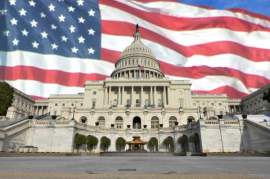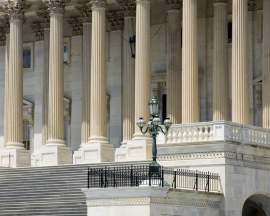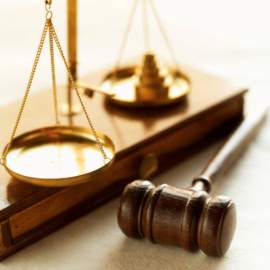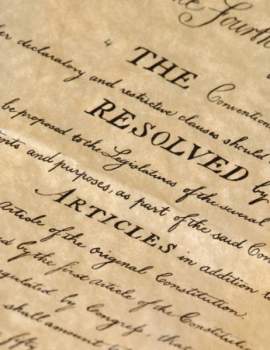
Understanding Of The Establishment of Religion

Popular In Constitution
Purpose Of Lifetime Appointment And Pros And Cons Enumerated Powers Bicameral Legislature Background Article 3 Of The Constitution We The People 1st Amendment Who Wrote The Constitution Judicial Review Equal Protection Clause 5th Amendment 10th Amendment Three Fifths Compromise
The topic of religion is of big interest to many Americans today. There are so many forms of religions that exist in the increasingly liberal world. Contrary to what many people believe, the Constitution applied the view of religion in its original document. Many issues regarding the Government and religion indirectly coincide. As the American nation, we are sums off all parts of religion and faith practices.
The establishment of religion in the Constitution started with the Bill of Rights. The
Bills of Rights applying to each State suggest that each individual should be able to enjoy
those rights regardless of any contradictory laws. In 1789, Representative James Madison gave a speech to the Court, introducing a series of articles to the Amendment. One of his beliefs addressed religious freedom.
In this document he expressed that the civil rights by no means should be shortened on account of religious beliefs and worship. Establishment of religion should not be held on a national level and the doctrine also emphasized that no equal right of pure conscience be intruded on.
The proposal of James Madison followed many
of the State practices that already operated off an establishment of religion. In New York, the State law
regarding religion declares that people have a natural right to declare their
religion and that no religious section or society should be held in higher
accordance to another. In Virginia, the law according to religion states that religion was
subject to a person's desire and religious beliefs could not be forced,
giving all men the right to exercise their
religious beliefs accordingly.
All of the rights of religious practices expressed by James Madison lead to the
religious clause now found in the First Amendment.
The 1st Amendment prevents the establishment of a national religion, as well as
protecting the rights of individuals who choose to practice religious
beliefs.When the Bill of Rights were first implemented, it had no governance over individual
states and how they choose to treat its churches.
The Bill of Rights only
applied to the Federal Government.The states were free to implement their own establishment of religion.
Each State was allowed to govern how church taxes were paid and
the requirement of church attendance.
The establishment of religion implemented the Free Exercise Clause to the Bill
of Rights. The Clause was accompanied by the Establishment Clause in the First Amendment.
Together these clauses identified that Congress could not make a law respecting
any establishment of religion or prohibiting the free exercise of religion.
These clauses within the Bill of Rights were made to protect individuals with religious beliefs. Citizens were given the freedom to express their religious views and practice worship. It also was a measure of protection for those who may not have a religious belief from being forced to adopt a religion.
The Free Exercise Clause and the Establishment Clause prevented the issue of religion from being a forceful impact on a nation like it is in other foreign countries. The establishment of religion is the basis of the Bill of Rights.
NEXT: US Government Structure





















